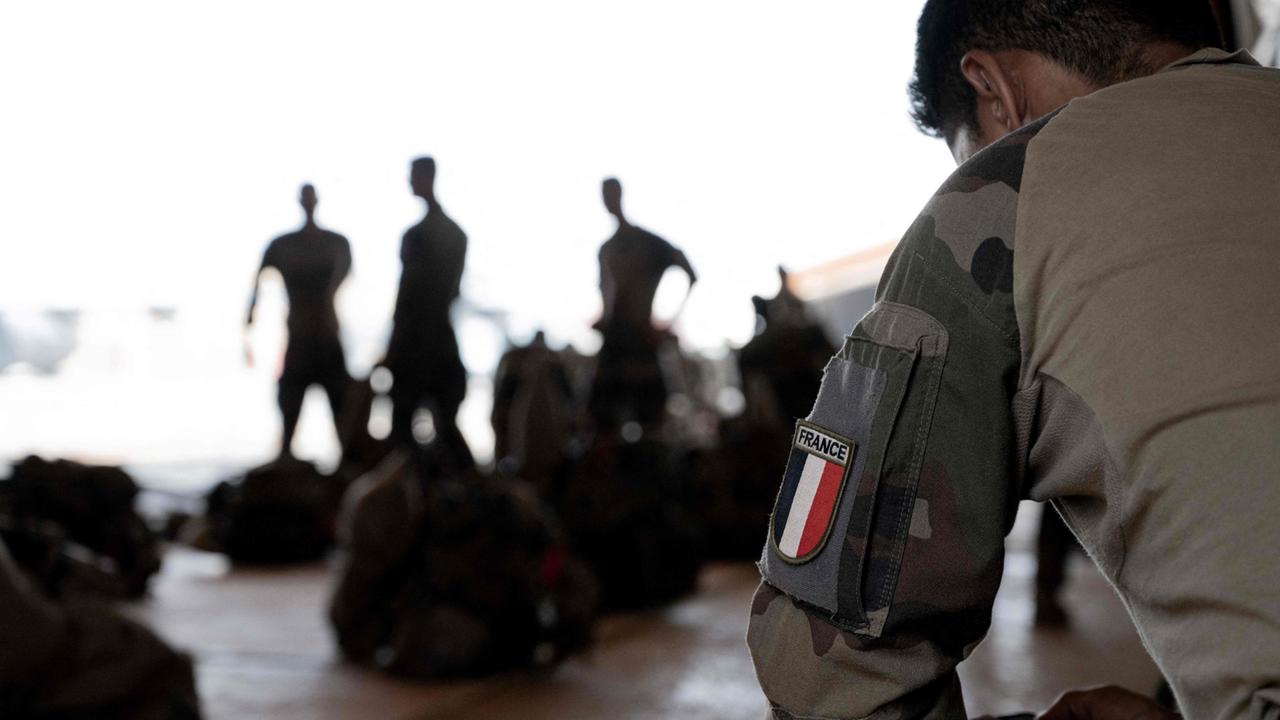The military government in Niger announced a few days ago that all French soldiers will leave the country. That doesn’t make things easier for Germany, either militarily or politically.
This is how quickly a “strategic partner” turns into a bitter opponent: When the presidential guard seized power in Niger at the end of July, pro-regime demonstrators burned French flags in the streets and waved Russian flags instead.
Protesters camped for days in front of the French military base on the outskirts of the city – which is right next to the German one – to emphasize the openly formulated expulsion of French troops by the new rulers. “The National Council for the Protection of the Fatherland has decided to end all cooperation in the field of security and defense with the state,” said an officer and spokesman for the military government, Amadou Abdramane, shortly after the coup.
military government folds anti-French mood
The military government fanned anti-French sentiment in the country from the first day it came to power. From then on she acted as a liberator from the supposed shackles of the former colonial power. “We don’t want their help. We want them to leave our country!” a man in the capital Niamey shouted after the French who were now withdrawing in October.
Even if the Germans are not met with such open hostility, the fact that the new government canceled important security and migration agreements with the EU also set off alarm bells for the federal government.
Germany loses partner in Niger
In view of this, scenes like these seem as if they come from another era: In April of this year, Defense Minister Boris Pistorius and his Nigerien counterpart Alkassoum Indattou were proudly photographed in front of a series of all-terrain vehicles that Germany had just handed over to the Nigerien armed forces . They showered each other with praise for the decades-old and excellent relationships: “The way we work together sets a model for other regions in the world,” Pistorius said at the time. That wasn’t even nine months ago.
Today the situation is completely different: Defense Minister Indattou has lost his job after the military coup in July – and Germany has lost its partner, which was praised as being so reliable, in the region tormented by Islamist terror.
Pistorius wants to stay in the conversation
In the week before Christmas, Boris Pistorius traveled to Niger for the second time in his term in office – to explore the chances of a cautious rapprochement with the military rulers. “I firmly believe that it is always better to stay in conversation with each other,” the SPD politician then stated.
The Germans would like to keep an air transport base on the outskirts of the capital with currently around 120 Bundeswehr soldiers – and thus also have a foot in the door. In times of Nigerien rapprochement with Russia. “From now on, the stationing of foreign troops in Niger will always depend on the consent of the people in Niger,” said the new Defense Minister Modi – thus initially leaving everything open regarding the future of the German soldiers in Niamey.
The French submit to their fate
As far as the future of the French troops is concerned, pretty much everything is clear: While there were still rumors in the first days and weeks after the coup that the French might intervene militarily, the troops ultimately resigned themselves to their fate. She is now leaving the country. He was “very, very happy,” said a resident of the capital after the announcement of his farewell a few weeks ago and added. “Merci” – thank you very much – to the address of the French.
Trigger throws difficulties for Germany
However, the withdrawal of the French does not make things easier for the Germans, either militarily or politically. On the one hand, Berlin – similar to the Americans – is taking its first cautious steps on a different path than Paris in dealing with the regime. The region is criss-crossed by refugee routes.
Leaving people who urgently need help to their own devices is considered negligent. On the other hand, they don’t want to alienate their important partner France. It is important to develop a new, common Sahel strategy at EU level. Without Paris this will hardly be possible.
Kai Küstner, ARD Rabat, tagesschau, December 21, 2023 7:25 p.m





